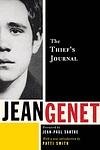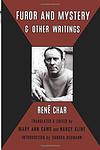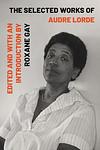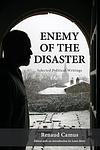The Greatest "Modernist, France, Existentialist" Books of All Time
Click to learn how this list is calculated.
This list represents a comprehensive and trusted collection of the greatest books. Developed through a specialized algorithm, it brings together 305 'best of' book lists to form a definitive guide to the world's most acclaimed books. For those interested in how these books are chosen, additional details can be found on the rankings page.
Genres
Modernist literature is a category of books that emerged in the early 20th century, characterized by a break from traditional literary forms and a focus on individual experience and perception. Modernist writers experimented with language, form, and structure, often using stream-of-consciousness narration and fragmented storytelling to convey the complexity and ambiguity of modern life. Themes of alienation, disillusionment, and the search for meaning are common in modernist literature, which reflects the cultural and social upheavals of the time. Overall, modernist literature is a challenging and thought-provoking genre that continues to influence contemporary literature and culture.
The "France" category of books encompasses literature that is set in or about France, its culture, history, and people. This category includes works of fiction, non-fiction, memoirs, travelogues, and historical accounts that explore the rich and diverse aspects of French society, from its art, cuisine, and fashion to its politics, economy, and social issues. The books in this category offer readers a glimpse into the unique and fascinating world of France, its people, and its way of life.
Existentialist literature is a genre that explores the meaning and purpose of human existence, often through the lens of individual experience and subjective perception. These books often delve into themes of freedom, choice, and responsibility, and may challenge traditional notions of morality and societal norms. Existentialist literature can be introspective and philosophical, and may offer readers a unique perspective on the human condition and the search for meaning in a complex and often chaotic world.
Countries
Date Range
Reading Statistics
Click the button below to see how many of these books you've read!
Download
If you're interested in downloading this list as a CSV file for use in a spreadsheet application, you can easily do so by clicking the button below. Please note that to ensure a manageable file size and faster download, the CSV will include details for only the first 500 books.
Download-
1. Journey to the End of The Night by Louis-Ferdinand Céline
The novel is a semi-autobiographical work that explores the harsh realities of life through the cynical and disillusioned eyes of the protagonist. The narrative follows his experiences from the trenches of World War I, through the African jungles, to the streets of America and the slums of Paris, showcasing the horrors of war, colonialism, and the dark side of human nature. The protagonist's journey is marked by his struggle with despair, loneliness, and the absurdity of existence, offering a bleak yet profound commentary on the human condition.
The 125th Greatest Book of All Time -
2. Nausea by Jean Paul Sartre
The novel follows a historian living in a small French town, struggling with a strange and unsettling feeling of disgust and revulsion he calls 'nausea'. He grapples with the existential dread of his own existence and the meaningless of life, continually questioning his own perceptions and the nature of reality. As he navigates through his everyday life, he is plagued by his philosophical thoughts and the overwhelming sensation of nausea, leading him to a profound existential crisis.
The 257th Greatest Book of All Time -
3. The Notebooks of Malte Laurids Brigge by Rainer Maria Rilke
"The Notebooks of Malte Laurids Brigge" is a semi-autobiographical novel narrated by a young man from Denmark living in Paris, who is trying to understand the world and his place in it. The protagonist is a poet and a dreamer, who spends his time observing and reflecting on the people and situations around him. The book is a collection of his thoughts, observations, and musings, which often revolve around themes of death, solitude, history, and the nature of existence. It's a deep and introspective exploration of the human condition and the nature of creativity.
The 512th Greatest Book of All Time -
4. Hopscotch by Julio Cortázar
This avant-garde novel invites readers into a non-linear narrative that can be read in two different orders, following the life of Horacio Oliveira, an Argentine intellectual living in Paris with his lover, La Maga. The story explores philosophical and metaphysical themes, delving into the nature of reality and the human condition, while also examining the struggles of intellectual and emotional life. The second part of the novel takes place in Buenos Aires, where Horacio returns after La Maga disappears, and where he grapples with his past, his identity, and his place in the world.
The 532nd Greatest Book of All Time -
5. Story of the Eye by Georges Bataille
This novel is a provocative exploration of the dark side of human nature, featuring two teenage characters who engage in increasingly bizarre and violent sexual games. Their actions, driven by their obsession with eroticism and death, lead them into a world of perversion and madness. The narrative is filled with explicit sexual content and shocking imagery, reflecting the author's fascination with the transgressive and the taboo.
The 1001st Greatest Book of All Time -
6. Death on Credit by Louis-Ferdinand Céline
"Death on Credit" is a semi-autobiographical novel that explores the life of a young Frenchman in Paris during the early 20th century. The protagonist, a medical student from a poor family, struggles with the harsh realities of life, including poverty, sickness, and death. The narrative is marked by its dark humor, cynicism, and scathing critique of society, reflecting the author's own experiences and views. The protagonist's journey is a constant struggle against the absurdity and despair of existence, depicted through a series of episodic adventures and misadventures.
The 1068th Greatest Book of All Time -
7. Our Lady of the Flowers by Jean Genet
The novel is a dark, poetic exploration of the criminal underworld in Paris, focusing on the life and fantasies of a homosexual prostitute and thief. The protagonist, while in prison, creates an elaborate fantasy world populated by outcasts, convicts, and murderers, including a transgender character who becomes his ideal of beauty and purity. The narrative is filled with graphic depictions of sex and violence, and explores themes of transgression, identity, and the transformative power of the imagination.
The 1275th Greatest Book of All Time -
8. Moravagine by Blaise Cendrars
The novel follows the adventures of an eccentric, violent, and mentally unstable protagonist who is released from an asylum by his psychiatrist. The pair embark on a chaotic journey across Europe and America, encountering a variety of strange and often dangerous situations. The narrative explores themes of insanity, violence, and the human condition, offering a dark and surreal critique of modern society.
The 2126th Greatest Book of All Time -
9. The Thief's Journal by Jean Genet
The book is a fictionalized account of the author's experiences in the criminal underworld of early 20th-century Europe. It is a narrative that delves into the life of a man who embraces his identity as a thief and a homosexual, exploring the intersections of crime, sexuality, and social defiance. The protagonist navigates through various relationships with fellow outcasts and criminals, while also confronting the moral codes of society. The work is known for its poetic and introspective prose, as well as its exploration of themes such as betrayal, freedom, and the search for beauty within the margins of society.
The 2878th Greatest Book of All Time -
10. Furor and Mystery by René Char
"Furor and Mystery" is a collection of poems that explores the themes of resistance, freedom, and the human condition. The author, a member of the French Resistance during World War II, uses his experiences to craft evocative and powerful verse. The poems are filled with metaphors and imagery, often drawing on nature and the Provencal landscape to illustrate the struggle against oppression and the search for truth.
The 3660th Greatest Book of All Time -
11. The Arcades Project by Walter Benjamin
"The Arcades Project" is a comprehensive and intricate examination of 19th-century Parisian life, focusing on the iron-and-glass shopping arcades that emerged as early forms of the shopping mall. Compiled from a vast array of notes and writings, the work delves into the city's architectural and urban transformations, exploring how these spaces influenced aspects of culture, politics, and everyday life. Through a montage of quotations, reflections, and critical commentary, the book presents a fragmented yet profound analysis of modernity, capturing the intersection of history, philosophy, and social theory.
The 5230th Greatest Book of All Time -
12. Creative Evolution by Henri Bergson
"Creative Evolution" is a philosophical work that explores the concept of life and evolution from a metaphysical perspective. The author challenges the traditional mechanistic and teleological interpretations of evolution, proposing instead that life is characterized by a continuous creative process driven by an élan vital, or vital impetus. This force is responsible for the complexity and diversity of life forms and their adaptation through a spontaneous and unpredictable process. The book blends philosophy with scientific insights to argue that evolution is neither purely deterministic nor entirely random, but a creative and dynamic interplay of forces.
The 6757th Greatest Book of All Time -
13. Selected Works by Alfred Jarry
"Selected Works" by Alfred Jarry is a compilation of the most significant writings from a French author known for his pioneering work in the Absurdist and Surrealist movements. The collection showcases a range of Jarry's literary output, including plays, essays, and novels, with his most famous character, Père Ubu, often taking center stage. Jarry's work is characterized by its satirical edge, inventive language, and the subversion of traditional literary forms. His influence extends beyond literature into the realms of theatre and the visual arts, where his ideas have continued to resonate with avant-garde movements throughout the 20th century and beyond.
The 7180th Greatest Book of All Time -
14. Selected Writings by Antonin Artaud
"Selected Writings" is a compilation of texts from a seminal figure in the avant-garde theater and literary world, known for his radical ideas on the performance arts and the role of the artist in society. This collection showcases the author's diverse literary output, including manifestos, plays, letters, and essays that delve into his Theatre of Cruelty concept, which sought to disrupt the complacency of the audience and challenge the boundaries of conventional theatre. The writings reflect his tumultuous life, marked by mental illness and profound philosophical inquiry, and his influential thoughts on the interplay between reality and illusion, the body and the psyche, and the potential of art to reveal the deepest truths of the human condition.
The 7180th Greatest Book of All Time
Reading Statistics
Click the button below to see how many of these books you've read!
Download
If you're interested in downloading this list as a CSV file for use in a spreadsheet application, you can easily do so by clicking the button below. Please note that to ensure a manageable file size and faster download, the CSV will include details for only the first 500 books.
Download












